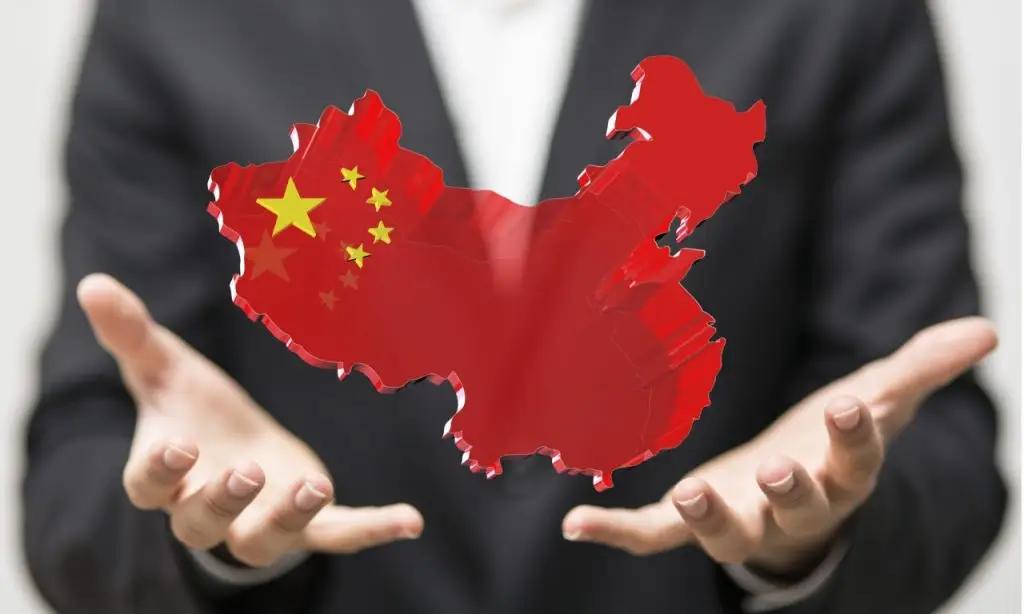
Published
09/29/2024, 23:12The interaction between Kyrgyzstan and China has been deepening with each passing year, which includes the period after the country entered the Eurasian Economic Union. Maria Suvorova, a Moscow-based expert on China, spoke about how to work with the Celestial Empire.
Strategic initiatives and new cooperation forms, such as trade and economic centres and signed investment treaties, contribute to further economic ties. In particular, decisions taken at the state level act like a catalyst for the emergence of new points of contact in the business sphere. According to JIA Business Association spokesperson Zhyldyz Kadyrova, several important B2B meetings have been held in recent years, and business tours to China have been organised, including trips to the Canton Exhibition. These events have not only facilitated the establishment of new contacts but strengthened business ties between entrepreneurs of the two countries as well. This is subsequently reflected in the statistics. In the first 7 months of 2024, the trade turnover between Kyrgyzstan and China reached $3.6 billion, which is 33.3% more compared to the last year analogous period. The statistics also reflect that the specific weight of China in the total volume of trade turnover of the Republic reaches 41% and higher values are not presented.
The development of relations with Kyrgyzstan's main trading partner requires domestic business representatives to understand the peculiarities of interaction with Chinese entrepreneurs. Maria Suvorova, a Chinese scholar and the founder of the translation company ‘B2B-Perevod’, told the Akchabar editorial board about the special approach to doing business with Chinese businessmen.
- WHAT KEY ASPECTS ARE TO BE CONSIDERED TO WORK EFFECTIVELY WITH ASIAN COUNTRIES, IN PARTICULAR CHINA?
- I would recommend investing your time and energy in understanding how East Asia is organised in general. After all, Asia and Europe are a perennial contradiction where each side has its characteristics. It is important not just to understand the Chinese culture or business environment but to delve into the deeper cultural norms. If a person works by the rules of his/her own culture, he/she will have a difficult time with Chinese or other Asian partners. Unfortunately, even if the deal is promising, not knowing the communication rules and not understanding the context can play a crucial role.
- CAN CULTURAL DIFFERENCES PREVENT A SUCCESSFUL DEAL?
- I have many examples of unique offers with super valuable resources failing to succeed because cultural differences have not been accounted. It all begins with the fact that our actions, be it gifts, business letters or gestures, are coded based on our culture, but decoded differently. We give something from the heart and the Chinese party may not understand our gesture. For example, expensive black caviar may be perceived as something unfamiliar and extremely unpleasant, and something that for us is an everyday and not very delicate product (e.g. organic honey, good chocolate - Author's note) may turn out to be a much more desirable gift.
- HOW DOES HISTORICAL CONTEXT AFFECT INTERACTIONS WITH CHINESE PARTNERS?
- When we observe how the Chinese communicate with each other - how they shake hands, what they present, how they deliver the news - we see the habits which have been ingrained in their lives over millennia of history. For example, there are differences between Japanese, Chinese and Korean bows, and one can only understand why things are the way they are by knowing the context deeply.
It can be said that despite the Confucian norms accepted in society, at the individual level, many Chinese are more Taoists. This means that they are inwardly orientated to the concept of the great river of life, which explains cause and effect, the passage of time, and the greatness of life as a process with no attachment to an outcome. While we are in a hurry to get a response to an email or a business proposal, their mentality suggests a more calm and measured approach, because in the context of eternity, a week is not that long, you'll agree. However, at the community level, Confucian principles are already at work: unity and a shared vision of the future. Thus, when we interact with a collective, we face one dynamic and in one-on-one interactions, we face another.
- ARE THERE ANY CHEAT SHEETS WHICH HELP TO UNDERSTAND THE BUSINESS CULTURE OF CHINA AND OTHER COUNTRIES?
- I always show my students the Lewis triangle, which lays out the key values of business cultures. On one side we have mono-active cultures, such as Germany, where everything is neatly contractual. On the other are polyreactive cultures like Latin America, where human relationships are more valued than formal agreements. China belongs to a reactive culture where tradition, ceremony and hierarchy are essential.
To the reactive block belong all high-context cultures, where not only the action is important, but all its circumstances and characteristics. All those who cannot express the totality of their relationship with this or that counterpart with just a text, just a letter, just a contract. There will be a lot of face-to-face meetings, a lot of zooms, at first glance completely secular conversations, dinners, and trips to some jade mines, and tea plantations, which may cause a feeling of time loss, especially for those who are used to working with the West. In reality, the objective of this joint pastime is to get to know the partners, understand their thinking, reactions, and character, and then move on (or not) to the business agenda.
My recommendation is to take 15 minutes to look in detail at the Lewis Triangle as a concept. There is a lot of information to be gotten from it about how to write contracts - in full or just in outline, with sample documents and all attachments. It is important to understand how it is customary to turn up for meetings - on time or not, how detailed the planning is and whether everything will be booked three months in advance or only outlined. It is important to consider what gifts are customary, and how important personal conversations and family meals are: whether they are about wives, children and hobbies, or strict, formal interaction on business only.
- WHAT ROLE NORMS EXIST IN CHINESE BUSINESS SOCIETY AND HOW DO THEY DIFFER FROM WESTERN ONES?
- Western business culture, as we know, has fairly transparent ‘rules of the game’, a managerial style. It can be authoritarian, where the boss sets the tone, or democratic, where everyone addresses each other by name and consults.
Asian companies often have Confucian management, which implies a strict hierarchy and deference to rank. Here, the boss is perceived as a father in the family, which makes it impossible to criticise him or discuss any decisions. Transitions between positions are strictly regulated and subordinates recognise their roles in this system.
Confucian norms include filial duty, which applies not only to the father and mother but also to the head of the company. It is a unified system in which one learns to live with respect for the hierarchy by observing rituals and rules of communication. The cult of scholarship is also important: academic titles and publications are valued even if they are not related to immediate duties.
Finally, the love of man and humanity is the basis of Confucian management. It is important to realise that in a traditional Chinese company, approaches differ from those adopted in Western companies. Traditional values remain relevant despite international impacts.
- HOW WELL DO WE, AS NEIGHBOURS, UNDERSTAND OUR CHINESE PARTNERS?
- We return to the thesis that, on the one hand, all people are the same, but on the other hand, no two people are alike. This difference is not superficial, but profound. My long experience has shown that the Chinese and we are much more alike than we believe. This is especially true for those living in Eurasia, particularly those who experienced the Soviet Union. In such localised communities, upbringing is often more unidirectional, which facilitates agreements on a civilisational level.
To illustrate this, let's consider the example that helps to determine the type of thinking - European or Eastern. I often deliver the question: ‘You have a cow, a chicken, and grass. Which of these is superfluous?’ For a European, grass is redundant, since a cow and a chicken make a logical pair of pets. However, for Easterners, including us, the logical pair is a cow and grass, because a cow eats grass.
- HOW DOES THIS ORIENTAL APPROACH MANIFEST ITSELF IN BUSINESS?
- Western partners will always have a functional approach, where details and specifics are crucial. Oriental partners, on the other hand, value frameworks and circumstances - the context in which they get immersed. An example is the conclusion of a significant contract. For a Western businessman, a new supplier is, first and foremost, a contract full of legal guarantees, force majeure, protocols and agreements. For Eastern partners, a relationship based on trust is more important. A detailed contract without building personal ties is perceived as a manifestation of mistrust, which can hinder successful cooperation.
In China, a contract is often formal, especially at the preliminary agreement stage. For them, a preliminary agreement signing is just the symbol of mutual friendship and partnership. Important agreements remain informal, over a cup of tea, in confidential conversations. This leads to frustration of Western companies, which tend to concretise everything on paper.
Chinese tradition, as in some other Oriental cultures, emphasises that legal disputes should be resolved before trial. Formal contracts are just a framework for them, the real work begins with finding mutual solutions in the process of work, where the dynamism of external conditions, be it changes in exchange rates or political realities, does not play an important role, because, I will emphasise again, everything is built primarily on trust and personal friendship between partners.
Thus, companies wishing to interact successfully with Eastern partners should invest time in building trusting relationships rather than relying solely on legal documents.
- WHY DO CHINESE PARTNERS NEGATIVELY PERCEIVE GOING TO COURT?
- Going to the courts is a serious step and is considered a loss of face in Eastern culture. A Chinese author who was writing back in the 1930s noted that 95 per cent of disputes, including commercial disputes, are settled out of court. For an Oriental to turn to a third party, albeit a qualified one, to resolve his/her case is to admit one's inability to negotiate. It breaks down communication and undermines trust.
In contrast, for a Westerner, there is nothing wrong with going to trial. Trial may not be the endpoint, but only one stage in the relationship.
Chess and weiqi (or go) can illustrate these differences. Chess is a dichotomy: one wins, the other loses. In business, this means that one can cleverly spell out a contract, insure one's risks and achieve favourable terms, but at the expense of one's partner's loss. This approach does not recognise that it is important to think of others in the complex reality. For example, if you don't help your neighbour grow rice, he may come to you with a knife to share yours; that is also important to think ahead.
In contrast, the emphasis in weiqi is on finding a balance. Every situation requires finding a compromise so that everyone can survive. This approach is based on the famous Chinese pragmatism: although business requires toughness, it's important to remember that being too selfish can have consequences. Everything on the board changes, and mutually beneficial relationships are key to long-term success.
- WHAT SHOULDN'T BE DONE WHEN WORKING WITH CHINESE COLLEAGUES?
- We have spoken about Confucian values such as filial deference, duty and ritual. In a business context, two key categories remain relevant when conflict arises: respect for the hierarchy and preserving your partner's face.
It is important to remember that in a confrontational situation, one should not criticise management or the company. Expressing negative emotions or dismissive attitudes can disrupt long-term relationships. If you are throwing a tantrum now or trying to ‘twist’ the situation with the lawyer's assistance, you are already questioning future business relationships.
We remember that the Chinese ‘thermos’ is hot on the inside and cold on the outside. This means that even in situations where you feel cheated - whether it's a faulty delivery or a failure to meet delivery deadlines - it's important to remain calm and demonstrate complacency. Turbulent emotions can affect your image as a partner and compromise your ability to engage constructively.
- ARE THERE ANY OTHER PECULIARITIES IN WORKING WITH CHINESE PARTNERS?
- Often we face non-reaction to simple requests, such as taking photos of a shipment or scanning documents. This can drag on for two reasons. The first is existential: in an eternity context, there is no point in rushing if a person has more serious matters to deal with. Understanding this reduces stress and increases productivity.
The second reason is related to differences in approaches to multitasking. Western associates often collect all the issues into one letter, while Eastern associates may prefer to break tasks into parts. If there are many items in one letter, an Eastern partner may become overwhelmed and put off all the questions, leading to frustration on the Western side.
It is important to take these differences as a given. We have our peculiarities in management just like our partners. Understanding and tolerating these differences will help build a more effective and harmonious business relationship.


